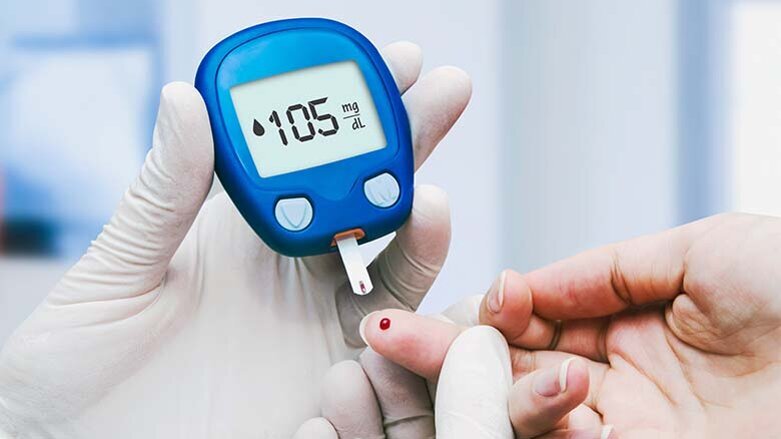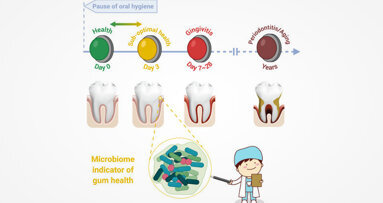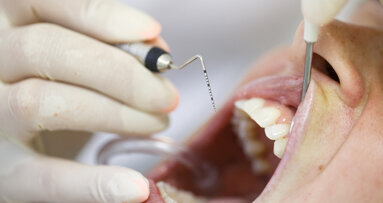STOCKHOLM, Sweden: The need for greater interdisciplinary communication among healthcare professionals is becoming increasingly evident. A recent study, for example, has found that patients with undetected glucose disorders have a higher risk of both myocardial infarction and periodontitis, a finding which should encourage diabetes specialists to consider their patients’ dental health and collaborate more closely with dentists, according to the researchers.
“Our findings indicate that dysglycaemia is a key risk factor in both severe periodontitis and myocardial infarction and that the combination of severe periodontitis and undetected diabetes further increases the risk of myocardial infarction,” said the study’s lead author, Dr Anna Norhammar, a cardiologist and associate professor at Karolinska Institutet’s Department of Medicine.
Based on the importance of collaboration across professions, the study was a joint venture between cardiologists and dentists. It made use of data from the PAROKRANK (periodontitis and its relation to coronary artery disease) study, which included 805 myocardial infarction patients from 17 Swedish cardiology clinics and 805 controls, who were matched by age, sex and postcode. The patients’ periodontal status was assessed with radiographs and their dysglycaemic status with a glucose tolerance test.
Participants with a previous diabetes diagnosis were excluded from the study, leaving 712 patients and 731 controls. Glucose status was divided into three categories: normal, reduced glucose tolerance and newly detected diabetes. Comparisons were made after adjusting for age, sex, smoking habits, education and civil status. Results showed that previously undetected glucose disorders, which include diabetes and impaired glucose tolerance, were linked to myocardial infarction and severe periodontitis. It was also roughly twice as common for myocardial infarction patients to have undetected dysglycaemia as for healthy controls.
“Many people visit the dentist regularly and maybe it’s worth considering taking routine blood sugar tests in patients with severe periodontitis to catch these patients,” noted Norhammar.
The study, titled “Undetected dysglycemia an important risk factor for two common diseases myocardial infarction and periodontitis: A report from the PAROKRANK study”, was published online on 10 June 2019 in Diabetes Care, ahead of inclusion in an issue.
Tags:
DOHA, Qatar: Since periodontitis and COVID-19 are both associated with systemic inflammation, researchers from Qatar University and Hamad Medical ...
MALMÖ, Sweden: Even though previous research has suggested a link between periodontitis and inflammatory bowel disease (IBD), the relationship and its ...
XIAN, China: Reflux is an uncomfortable condition that can have negative effects on a patient’s oral health. In a recent study, researchers have ...
SEOUL, South Korea: As periodontitis and halitosis share a microbiological pathogenesis, researchers from the Seoul National University School of Dentistry ...
OKAYAMA, Japan: Since periodontitis has been linked to systemic health conditions, including heart disease, diabetes, cancer and Alzheimer’s disease, ...
QINGDAO, China: Most adults experience episodes of gingivitis, which can progress to periodontitis, yet the role of plaque in gingivitis onset and ...
TORONTO, Canada: For multiple reasons, vitamin D3 is an essential vitamin. In a new study that may add to its importance, researchers from the University of...
AARHUS, Denmark: The effect a high-sugar diet can have on teeth is well documented; however, the effect it can have on periodontal health has not been as ...
MELBOURNE, Australia: Tooth loss can have a profound impact on social interactions and self-esteem. While poor oral health is known to be associated with ...
MICHIGAN, U.S.: Opioid addiction has been a concern in America for some time. In a new study, researchers have found that teens and young adults who have ...
Live webinar
Tue. 24 February 2026
1:00 pm EST (New York)
Prof. Dr. Markus B. Hürzeler
Live webinar
Tue. 24 February 2026
3:00 pm EST (New York)
Prof. Dr. Marcel A. Wainwright DDS, PhD
Live webinar
Wed. 25 February 2026
11:00 am EST (New York)
Prof. Dr. Daniel Edelhoff
Live webinar
Wed. 25 February 2026
1:00 pm EST (New York)
Live webinar
Wed. 25 February 2026
8:00 pm EST (New York)
Live webinar
Tue. 3 March 2026
11:00 am EST (New York)
Dr. Omar Lugo Cirujano Maxilofacial
Live webinar
Tue. 3 March 2026
8:00 pm EST (New York)
Dr. Vasiliki Maseli DDS, MS, EdM



 Austria / Österreich
Austria / Österreich
 Bosnia and Herzegovina / Босна и Херцеговина
Bosnia and Herzegovina / Босна и Херцеговина
 Bulgaria / България
Bulgaria / България
 Croatia / Hrvatska
Croatia / Hrvatska
 Czech Republic & Slovakia / Česká republika & Slovensko
Czech Republic & Slovakia / Česká republika & Slovensko
 France / France
France / France
 Germany / Deutschland
Germany / Deutschland
 Greece / ΕΛΛΑΔΑ
Greece / ΕΛΛΑΔΑ
 Hungary / Hungary
Hungary / Hungary
 Italy / Italia
Italy / Italia
 Netherlands / Nederland
Netherlands / Nederland
 Nordic / Nordic
Nordic / Nordic
 Poland / Polska
Poland / Polska
 Portugal / Portugal
Portugal / Portugal
 Romania & Moldova / România & Moldova
Romania & Moldova / România & Moldova
 Slovenia / Slovenija
Slovenia / Slovenija
 Serbia & Montenegro / Србија и Црна Гора
Serbia & Montenegro / Србија и Црна Гора
 Spain / España
Spain / España
 Switzerland / Schweiz
Switzerland / Schweiz
 Turkey / Türkiye
Turkey / Türkiye
 UK & Ireland / UK & Ireland
UK & Ireland / UK & Ireland
 Brazil / Brasil
Brazil / Brasil
 Canada / Canada
Canada / Canada
 Latin America / Latinoamérica
Latin America / Latinoamérica
 USA / USA
USA / USA
 China / 中国
China / 中国
 India / भारत गणराज्य
India / भारत गणराज्य
 Pakistan / Pākistān
Pakistan / Pākistān
 Vietnam / Việt Nam
Vietnam / Việt Nam
 ASEAN / ASEAN
ASEAN / ASEAN
 Israel / מְדִינַת יִשְׂרָאֵל
Israel / מְדִינַת יִשְׂרָאֵל
 Algeria, Morocco & Tunisia / الجزائر والمغرب وتونس
Algeria, Morocco & Tunisia / الجزائر والمغرب وتونس
 Middle East / Middle East
Middle East / Middle East











































To post a reply please login or register